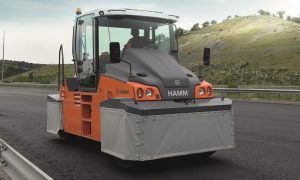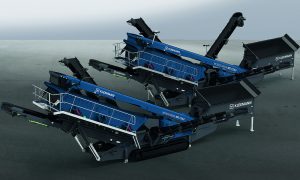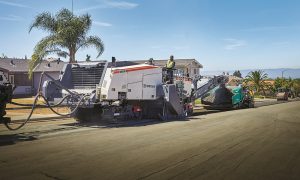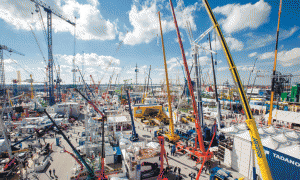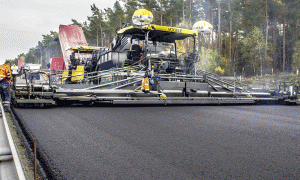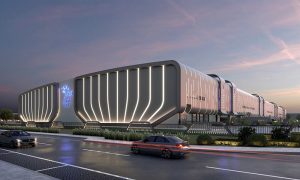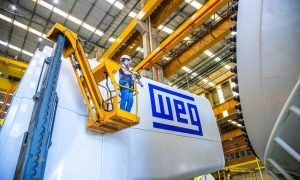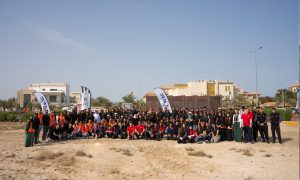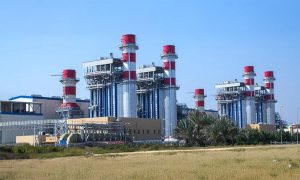Wirtgen paver sets world records during concrete paving in India
SP 1600 slipform machin helps complete 2.56km stretch of highway paving in 24 hours with 18.75m working width, setting four records in the process
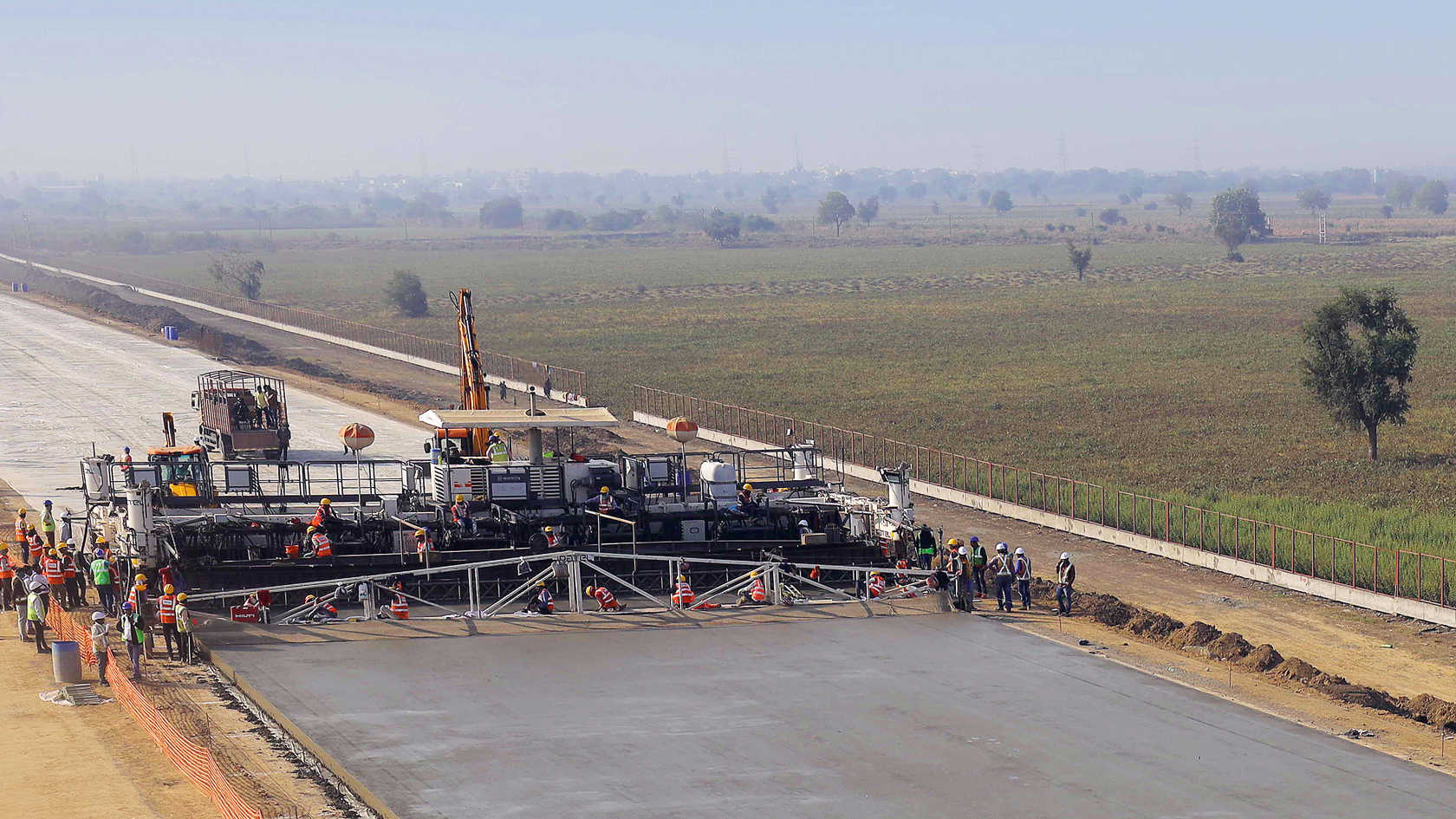
A Wirtgen SP 1600 slipform paver has set four world records during the paving of a stretch of a new highway being constructed in India linking the cities of Mumbai and New Delhi.
The SP 1600 set the record for the longest distance of motorway paved in 24 hours, completing a 2.56km four-lane stretch and its hard shoulder withing 24 hours. The stretch has a working width of 18.75m over the entire distance and the entire effort led to the creation of three more world records.
In total, the four records were for the largest quantity of PQC paved in 24 hours with 14,613.30m³, the largest volume of PQC produced in 24 hours with 14,370m³, the longest continuous section – 1,280m – with a width of 18.75m paved with PQC in 24 hours, and the largest area of a motorway paved with PQC in 24 hours at 48,711m².
The figures were recorded and entered into the Golden Book of World Records and the India Book of Records in connection with construction projects. The stretch of the highway where the record was created is situated between the major Indian city of Vadodara and the metropolis of Mumbai.
According to Wirtgen, the SP 1600 was able to demonstrate its impressive performance potential in setting the four world records. At temperatures around 28 degrees Celsius, the record attempt started on February 1, 2021 at 8am and ended 24 hours later. The contractor was Patel Infrastructure Pvt. Ltd.
The major Vadodara-Mumbai Expressway project is part of the 1,350km Delhi-Mumbai Expressway linking India’s capital New Delhi and Mumbai. The construction project, part of the country’s National Highways Development Project, passes through six states and, due to its size, has been divided into more than 50 individual sub-projects awarded by the National Highways Authority of India (NHAI).
Initially, the roadway will be widened to eight lanes, with four lanes in each direction. Looking ahead to the future, however, sufficient space has been set aside in the middle of the road to allow four additional lanes to be added. The motorway, often referred to as the backbone of the Delhi-Mumbai Industrial Corridor, cuts travel time between Delhi and Mumbai from 24 to 12 hours. The NHAI (National Highways Authority of India) expects an average daily traffic volume of 100,000 passenger car equivalent units.
A project of this size calls for maximum concrete paving performance, both in terms of output and quality, said Wirtgen, with the SP 1600 using flexibility and innovative strength to create customised solutions and achieve maximum productivity. The slipform paver cost-effectively paves concrete surfaces for traffic areas, roadways, industrial areas or surfaces at airports, such as runways or taxiways, with a working width of up to 16m. It can be used to pave full-width motorways in a single pass.
When that was not enough, as in the Indian project, Wirtgen‘s R&D department worked closely with Patel Infrastructure Pvt. Ltd. to develop a customised special solution for the company. The machine and, in particular, its concrete unit, was extended to a working width of 18.75m. This involved, on the one hand, additional extension elements for each component, including the extremely complex dowel bar inserter. On the other hand, the machine had to be able to compensate for the enormous amount of additional weight and still be capable of high-precision levelling. The TCM 180 texture curing machine was also adapted to the working width of 18.75m in order to apply a dispersion to the concrete surface behind the slipform paver as protection against evaporation.
To ensure that the customised machine always ran smoothly, the project was supported by four Wirtgen technicians. Every hour, a total of 45 transport vehicles delivered concrete to the construction site to provide the slipform paver with sufficient material. In order to be able to process this enormous quantity of concrete in such a short time, the paving process had to be carried out at an average speed of 1.8m/min. Approximately 30,000 dowel bars and tie bars were inserted using the built-in automatic dowel bar inserter (DBI) and the central tie bar inserters (CTBI), providing the structure with the necessary stability and ensuring that the slabs are bonded together properly to withstand traffic loads for many years to come.
